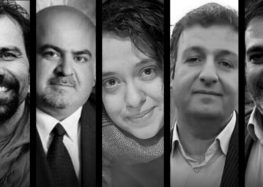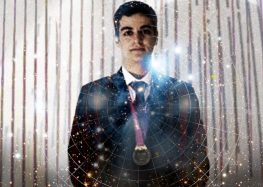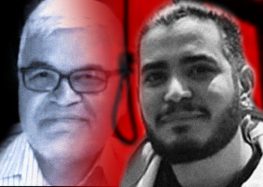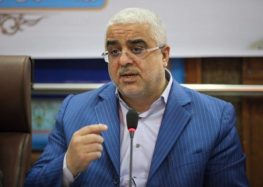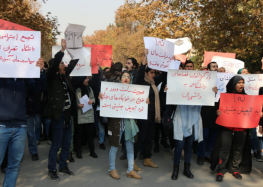Sharif University Honor Students Tortured, Detained in High-Security Ward
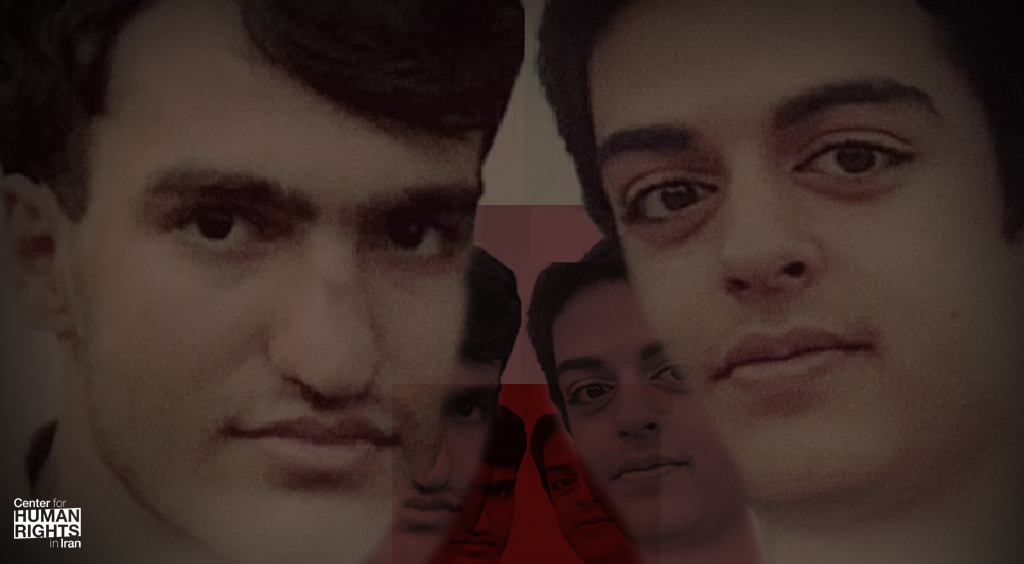 A year after agents of Iran’s Intelligence Ministry arrested and tortured them, university students Ali Younesi and Amirhossein Moradi remain in Ward 209 of Evin Prison in Tehran, controlled by the ministry, while being denied access to lawyers and their relatives, the Center for Human Rights in Iran (CHRI) has learned.
A year after agents of Iran’s Intelligence Ministry arrested and tortured them, university students Ali Younesi and Amirhossein Moradi remain in Ward 209 of Evin Prison in Tehran, controlled by the ministry, while being denied access to lawyers and their relatives, the Center for Human Rights in Iran (CHRI) has learned.
The Sharif University of Technology honor students were due to go on trial on trumped-up national security charges on April 11, 2021, but the session was canceled for unknown reasons, their lawyer Mostafa Nili said in an interview with the Emtedad Persian news site.
Younesi’s brother believes the trial was postponed deliberately to psychologically intimidate the detainees.
“The lawyers and relatives were in court to witness the trial, but the intelligence agents refused to bring Amirhossein and Ali to the courtroom because they want to torment them and make life difficult for the relatives and lawyers,” Reza Younesi told CHRI on April 14.
Reza Younesi pointed out that his brother has been tortured and held in prolonged solitary confinement, according to comments made by former cellmate Mojtaba Hosseini.
“[In July 2020], I was with Ali in Ward 209’s quarantine unit for nine days,” Hosseini said in an interview with the London-based IranWire on April 14, 2021. “Physically he was not well at all and when he told me about all the psychological and physical torture, I realized what the young man had gone through during 100 days of detention.”
Hosseini, who had been arrested by Intelligence Ministry agents for posting humorous tweets criticizing the government, said he saw one of Ali’s eyes was badly swollen, for which the prison physician had prescribed antibiotics.
“When other cellmates told Ali that the pressures on him could end if he accepted the accusations by the interrogators, he would respond angrily and say, ‘Why should I accept total lies? By surrendering, I would be signing my own death sentence,’” Hosseini said.
During his initial detention, Younesi was held in solitary confinement in a small cell for 60 days with a single ceiling light always on, Hosseini added.
The pressure became so unbearable that Younesi agreed to make false “confessions” in front of a camera after the authorities promised freedom and at the same time threatened execution.
Iran’s intelligence agencies have a documented history of pressuring detainees to make false, self-incriminating statements and then smearing the defendants by broadcasting their forced “confessions” on state-run TV.
Reza Younesi said the families of the students and their lawyers are trying to convince the authorities to follow lawful judicial procedures and allow them to meet with their lawyers. They could also lawfully be free on bail until the end of their trial or transferred to a public ward that is not controlled by intelligence agents.
Their lawyer told a Persian-language news site that he has been banned from seeing them.
“Keeping suspects in solitary confinement or in security wards is by itself a violation of their rights and in some cases could be considered torture,” Nili said in his interview with Emtedad.
“In addition, my clients have not even been allowed to freely contact their families and as their lawyers, we haven’t been able to have face-to-face visits or phone conversations,” he added.
“Keeping Ali and Amirhossein in Ward 209 is putting extra psychological pressure on them and their families and therefore we want them to be transferred to a public ward like other political prisoners,” Reza Younesi said.
Detainees held on political charges are usually moved to public wards inside Evin Prison after the end of the interrogations in high-security wards, such as Ward 209, which is controlled by the Intelligence Ministry.
Meanwhile Younesi also caught the COVID-19 virus.
“Ali contracted the coronavirus a few months ago,” Reza Younesi told CHRI. “He was taken to the quarantine unit and held alongside another prisoner who had it, too. We don’t know if Ali’s hearing problems are the aftereffects of COVID-19 or a result of violent treatment by the agents.”
Younesi and Moradi were arrested by state agents on April 10, 2020. Both are highly gifted students; In 2016, Younesi won a gold medal in the International Astronomy Olympiad and Moradi won a silver medal in Iran’s domestic astronomy Olympiad.
On the anniversary of their arrest, the Islamic Association of Students at Sharif University of Technology wrote to Judiciary Chief Ebrahim Raisi calling for Moradi and Younesi’s release on bail and a fair trial.
“The case concerning these two students is a reminder of a dark time when suspects were not only denied their basic human rights but also forced to make false confessions,” the association said in its letter on April 13, 2021.
“The Islamic Association of Students appeals for the release of these students on bail until a fair trial is held by a branch of the courts that does not have a reputation for lacking judicial autonomy,” it added.
In May 2020, a month after Younesi and Moradi were arrested, Judiciary Spokesman Gholam-Hossein Esmaili accused them of having contact with “counter-revolutionary groups” namely the banned Mojahedin-e-Khalgh organization (aka MEK).
A source with detailed knowledge of the cases strongly denied the charge, noting that they had been arrested for tearing up a poster of Supreme Leader Ali Khamenei and then more false allegations were cooked up by intelligence agents to justify detaining the students.
Read this article in Persian

